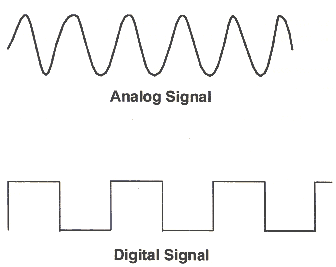
Today the BBC has posted an article about why we don’t have scent coming through our television sets yet. The article lightly explores the attempts of years past, all the way up to some in-process attempts right now around the VR (Virtual Reality) hubbub. It’s exciting to think about, and whenever something is exciting and flashy, it’s pertinent to consider it critically. While I researched historic films and innovative design projects using scent for my book Nose Dive (2019), I am more intimately familiar with this attempt of tech embracing scent than previously shared.
Years ago I was working as a management consultant, specializing in strategic planning. It was the dot com boom, so if you were a company wanting to be bought by a larger company, or you were going public, I would help with the valuations in order to prove you were potentially worth, and in the same league as, other software behemoths. Or if you were kachoo dot com or fetchmymail dot com, you could hire my colleagues and me to write a business plan for you.
Towards the end of the boom, when I was preparing to move to a more stable and larger consulting firm, my small firm was hired to write a business plan for a company looking to push scent through computers. As the writer and critical thinker of the bunch, I led the effort to document who their market was, how they would scale, revenue streams, etc.
Within two weeks of working with them in a small, slightly empty office near the early eBay offices on the peninsula in the Bay Area, it became clear that the small group of founders (all male), were hoping this would be a boon to scent one market and one market only: the one that rhymes with horn.
I was young, and the only woman in the offices. I am and was staunchly feminist and became increasingly uncomfortable with the prospect of helping to propel this company to support and scent an industry that historically has created false and dangerous stereotypes of women and ideas of intimacy. So I asked to be transferred to another engagement. (Full disclosure: that did not stop me from being hired to integrate streaming porn on gay.com years later, whose parent company PlanetOut Partners was partly owned by Disney.)
It was clear at the time that the hardware to execute the computer scent on demand was not available yet, and they needed the funds, and lots of them, to get even close to a prototype. Imagining what on earth they were trying to design the scent of turned my stomach in ways that to this day still do.
The BBC article shares the novel idea of a movie happening and scent coming through: if you’ve ever been to Disney, you go on rides and they are scented. It’s possible and it’s happening. It doesn’t smell natural though it’s curious. I attended a professional and informative talk on Zoom with Olivia Jezler, quoted as a source in the BBC article. There were so many interesting scent design initiatives she was sharing that many of us are not privy to. In the chatbox, I desperately asked towards the end of the talk “Are these developers also researching the effects of scent fatigue?” Sadly the forum was too short to have my question addressed.
Scent fatigue is real, and should be considered. We get used to certain smells, and scent conditioning is an actual psychosocial element and may be used maladaptively. Also, we are uninformed with the full health effects of having scents continually pushed to our systems and we haven’t received much education on how to critique scent. I am a huge fan of all stripes of scent – natural, synthetic, perfume, food, novelty items. I like the pool toy scent as much as I like a jasmin grandiflorum absolute. I also know that we as consumers know little about what we are consuming.
I’ve written about and talked awkwardly on panels to an unsuspecting audience about the fact that we are indeed limbic system junkies. There’s been a rash of dinosaur porn (true), and we will do anything for a hit to our primitive brain these days. Scent is the quickest ride to the dinosaur area of our brain. People are not generally thinking critically about this yet though. We seem to be considering things like scent as entertainment, consumption and novelty. It is so much more.
And in the article Saskia Wilson-Brown of the IAO reminds us we don’t really know how we smell. Scientists can’t agree on it. So if we don’t know how we smell, why would we be comfortable pushing scent through televisions? While I appreciate Wilson-Brown’s art analogy of scenting through television to a Medieval painter’s inability to depict reality with perspective, the following quote from the BBC article needs correcting:
“……developing an artificial scenting device is akin to asking a Medieval artist to reproduce a true-to-life painting before they have grasped the basic tenets of perspective.”
While Medieval artists did know perspective full well, they chose not to use it for respect to what they were depicting: religious subjects. Things of the spiritual world were to be different, on purpose and out of respect, than the earthly, perspective world. Please see first-century art in Pompei, Portrait of Terentius, painted with beautiful perspective skills.
In sum, we are not exactly Medieval artists trying ineffectually to paint people, we are more like the people in the Breughel paintings, seeking desperately, often foolishly, for connection in an increasingly disconnected world. Smell connects us to one another in beautiful ways. Instead of wondering or hoping for scents coming through the TV, go exploring new scents. Or spray your usual scent on a letter and mail it to your friend or lover – this is a gorgeous and novel way to hit that limbic system. Or is it? Or stick with the Odorama paper scratch and sniff for the movies, it’s clever, cheap and I have one from 1981 that still smells.
#analogisthenewnew

Pieter Bruegel the Elder
0 Comments
Would you like to share your thoughts?